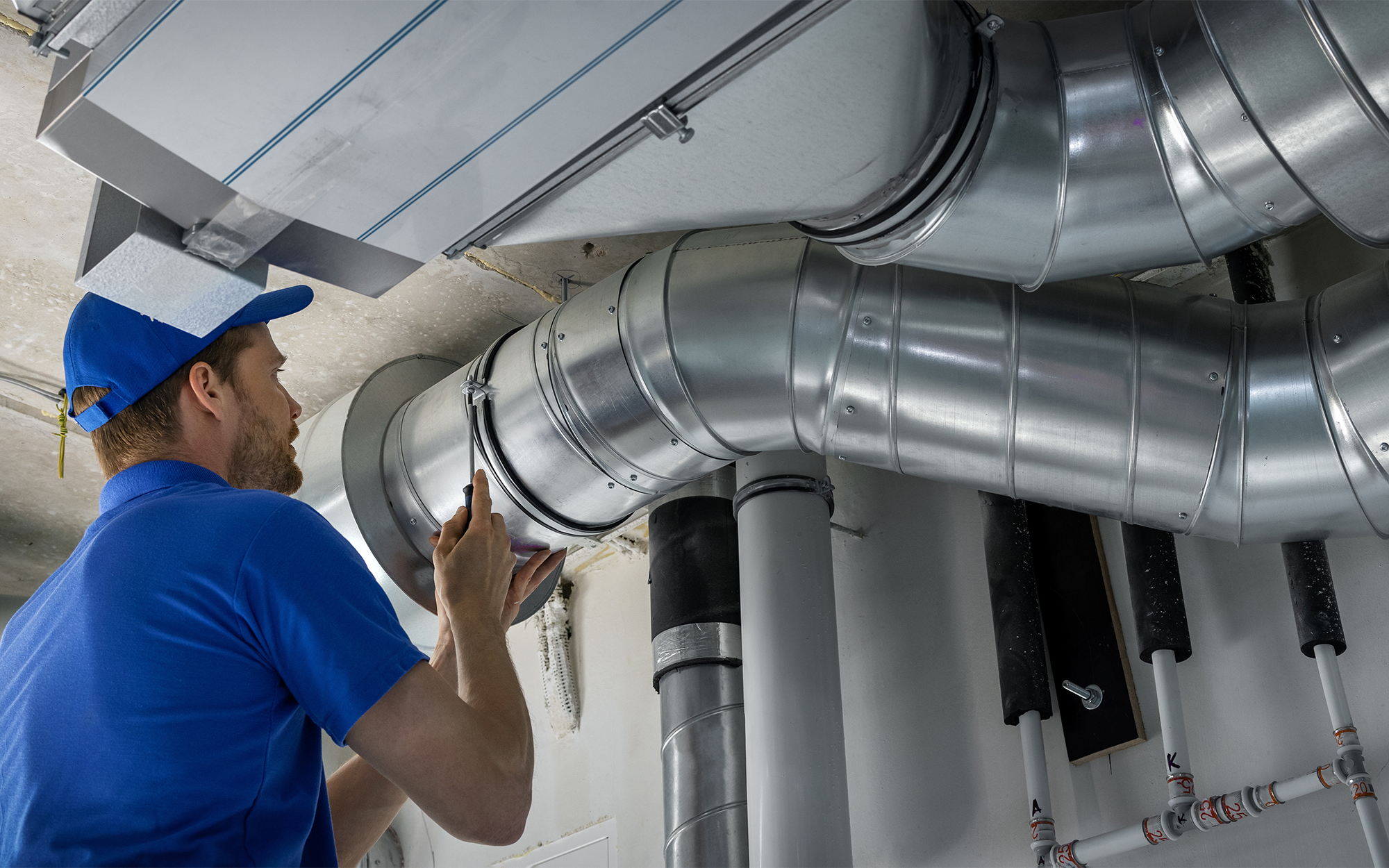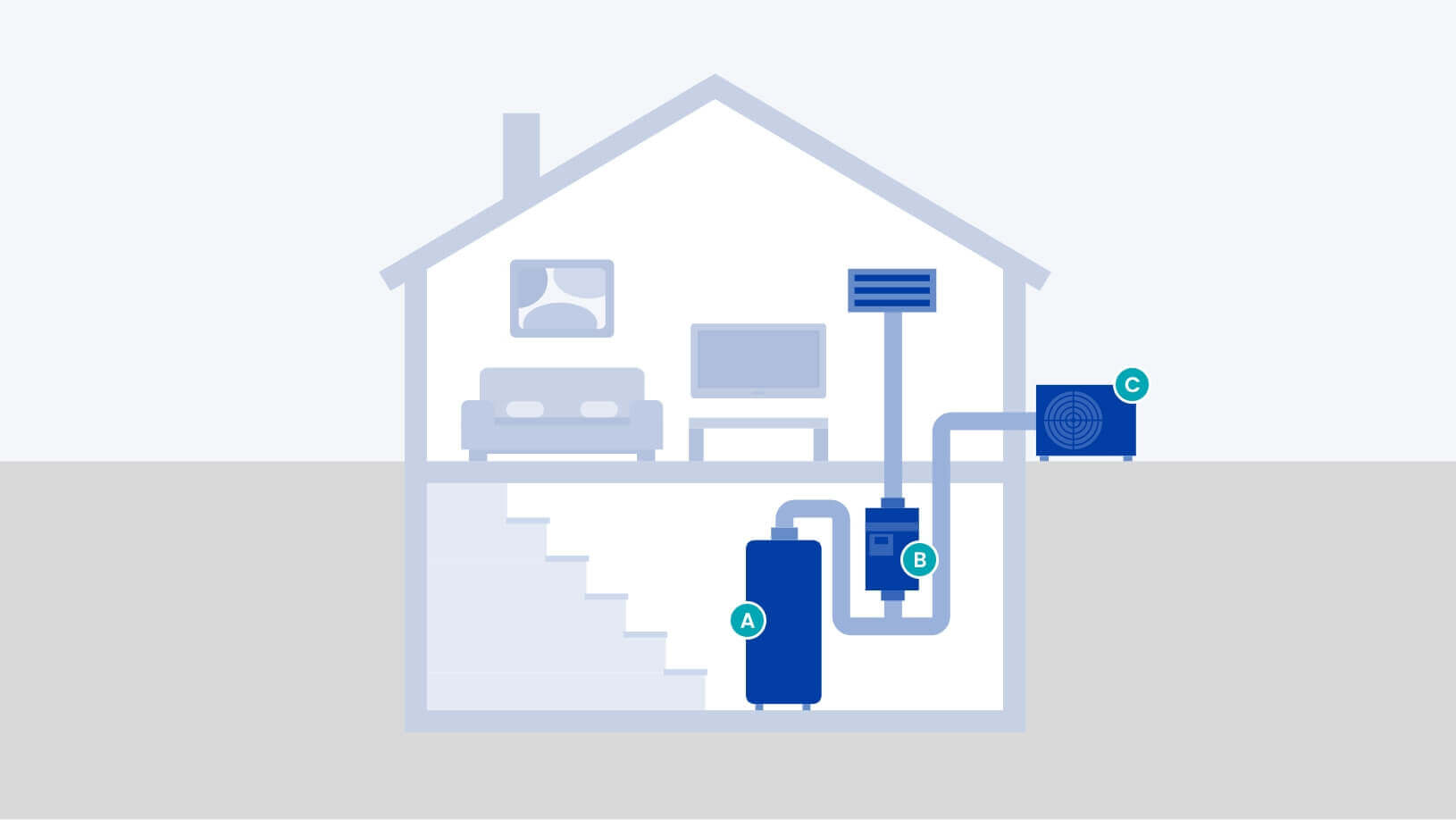Understanding the Different Kinds of HVAC System for Optimum Efficiency
Recognizing the different kinds of HVAC systems is important for property owners aiming to boost convenience and energy efficiency. Central air conditioning systems provide uniform temperature control, while ductless mini-split systems supply versatility. Warm pumps provide efficient year-round environment administration. For smaller rooms, window and portable ac system work as practical options. Geothermal systems make use of regular underground temperatures for sustainable cooling and heating. Each alternative holds special benefits, prompting a more detailed assessment of which might match private needs best.
Air Conditioning Systems
Numerous homeowners seek means to improve interior comfort, comprehending main air conditioning systems is important for reliable climate control. Central air runs by distributing trendy air with a system of air ducts, distributing it uniformly throughout the home. This kind of system consists of a number of key elements, consisting of an outdoor compressor, an interior evaporator coil, and a network of ductwork.
The compressor cools down refrigerant, which then takes in warmth from interior air as it passes via the evaporator coil. This cooled air is pushed via the ducts and right into living rooms, ensuring a consistent temperature. Central air systems are recognized for their efficiency, commonly making use of programmable thermostats to optimize energy use. Routine upkeep, such as filter adjustments and system checks, is important to ensure durability and efficiency. Recognizing these components helps homeowners make notified decisions relating to installment and maintenance, inevitably enhancing comfort and energy efficiency in their homes.
Ductless Mini-Split Systems
Ductless mini-split systems provide a versatile option to conventional central air conditioning, catering to property owners seeking effective climate control without the requirement for considerable ductwork. These systems contain an outdoor compressor device and several interior air-handling devices, enabling targeted air conditioning and home heating in details locations or spaces. This zoning ability improves comfort by enabling customers to readjust temperature levels based upon individual choices, inevitably causing energy savings.
Installation is usually less complex and less intrusive contrasted to ducted systems, which can be helpful for older homes or areas with limited architectural alterations. In addition, ductless mini-split systems frequently feature energy-efficient modern technologies, such as inverter-driven compressors, which maximize energy intake based upon demand. Their portable style also enables various positioning alternatives, making them optimal for tight or unusual areas. Therefore, ductless mini-split systems have actually gained appeal among homeowners trying to find modern, reliable heating and cooling solutions.
Warm Pumps
Heatpump stand for a versatile and energy-efficient alternative for both home heating and cooling down residential areas. These systems run by moving warm instead than producing it, making them especially reliable in moderate environments. During warmer months, heatpump extract warm from indoors and release it outside, giving cooling. Conversely, in winter months, they reverse this process, attracting warmth from the outside air or ground to heat the inside.
There are two main kinds of heat pumps: air-source and ground-source (or geothermal) Air-source heatpump are a lot more usual as a result of their easier setup and lower first price, while ground-source models boast higher performance and stability in performance. Furthermore, warmth pumps can notably decrease power expenses and carbon footprints when contrasted to conventional heating techniques, making them an eco-friendly option. Generally, warmth pumps stand as a compelling solution for property owners looking for effective environment control throughout the year.
Home Window and Portable Air Conditioners

On the other hand, portable air conditioning system supply adaptability, as they can be conveniently relocated from space to space. These systems typically require a venting package to tire warm air via a home window, yet they give a hassle-free choice for momentary cooling demands.
Both kinds of ac unit are ideal for occupants and those looking for to prevent substantial setup processes. Customers must think about elements such as BTU capacity, power effectiveness scores, and noise degrees when choosing an unit to assure peak performance for their particular room and air conditioning demands.
Geothermal Heating & Cooling Systems
As power effectiveness becomes significantly essential, geothermal heating and air conditioning systems have obtained popularity for their sustainable technique to climate control. These systems make use of the steady temperatures found below ground to offer home heating in wintertime and air conditioning in summertime. By harnessing the planet's natural thermal energy, geothermal systems considerably minimize dependence on nonrenewable fuel sources and reduced utility expenses.

Geothermal systems commonly need much less upkeep compared to conventional Cooling and heating systems, resulting official website in long-term savings. With boosting recognition of environment change, these systems represent a forward-thinking option for those looking for environment-friendly and reliable home heating and cooling down alternatives
Regularly Asked Inquiries
How Frequently Should I Service My A/c System?
Heating and cooling systems must preferably be serviced two times a year, when in the springtime and when in the autumn. Routine upkeep assists ensure effectiveness, extends lifespan, and avoids costly break downs during peak usage periods.
What Dimension Heating And Cooling System Do I Need for My Home?
Identifying the go to this website suitable size for an a/c system needs determining the home's square footage, insulation quality, and environment. A specialist analysis assurances maximum efficiency, convenience, and energy cost savings tailored to the details demands of the home.
Can I Install a HVAC System Myself?
Mounting a cooling and heating system separately is possible, yet it calls for technological expertise and skills. Blunders can cause inefficiency or safety threats, so getting in touch with an expert is typically recommended to assure proper setup and compliance with regulations.
What Are the Indicators My Heating And Cooling System Needs Repair Service?
Signs that a cooling and heating system needs fixing include uncommon noises, irregular temperatures, boosted energy expenses, unpleasant odors, and constant cycling. Motivate attention to these indications can prevent additional damage and guarantee optimal system performance.
Just How Can I Improve My a/c System's Power Effectiveness?
To boost HVAC power performance, one ought to consistently change filters, seal air ducts, set up a programmable thermostat, guarantee appropriate insulation, and timetable routine upkeep checks. HVAC experts. These activities jointly enhance efficiency while reducing power consumption and prices
Central air conditioning systems provide uniform temperature level control, while ductless mini-split systems offer versatility. Central air conditioning runs by flowing amazing air with a system of ducts, dispersing it equally throughout the home. Central air conditioning systems are known for their effectiveness, usually utilizing programmable thermostats to optimize energy use. Ductless mini-split systems use an adaptable choice to traditional central air conditioning, providing to property owners seeking effective environment control without the requirement for considerable ductwork. Geothermal systems typically require less maintenance visit this site right here compared to traditional Heating and cooling systems, resulting in long-lasting savings.